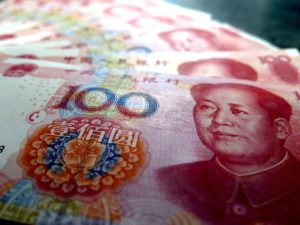I am lately getting a ton of calls from reporters wanting examples of companies leaving China because of its increasingly oppressive cybersecurity, data security and counter-espionage laws. When I tell them I have no such examples, they are surprised. I then explain how companies tend to believe they are capable of navigating such things and avoiding being singled out by the Chinese government.
Companies tend to be leaving China because of the problems they are already having in China (such as increased costs, logistical problems, and decreased quality) and existential risks like a Taiwan invasion or the United States and the EU blocking trade with China for China’s helping Russia brutalize Ukraine.
I say this because the two most common questions I get from clients (and I get these questions at least once a week) are when will China invade Taiwan and will the CCP ever be overthrown? I answer both questions by saying that I have read just about everything possible, but I have no clue. I sometimes mention that both my freshman tutorial and my senior thesis in college were on what leads to revolution. I then say that it (an invasion of Taiwan and a regime change in China) could be within a month, a year, ten years, or 50 years. I sometimes then toss in one of my favorite lines from one of my favorite authors: things happen “gradually and then suddenly.”
With all that has been happening with Russia and China these last few days, I’ve been thinking a lot about Taiwan and regime change.
What Propels Regime Change?
Many look at dictators like Putin in Russia, Xi in China, and Kim Jong Un in North Korea and they cannot imagine those countries ever becoming democracies, or any regime change at all. But countries and governments always eventually change. Plenty of countries that were once authoritarian/totalitarian are now democracies (See Germany, South Korea, Spain, and Japan) and vice-versa (See Venezuela, Russia, and Hungary). Countries and governments constantly become more or less democratic, or more or less authoritarian. Change is inevitable.
Predicting the future, especially something like regime change, is always fraught with uncertainty. Political systems are complex, and events can be influenced by countless variables, many of which are unknowable or unpredictable. But what tends to propel regime changes and what do those things tell us about the future for China, Russia, and North Korea?
In my senior thesis, I listed the following as regime change propellants:
- Enough people who want and will fight for regime change.
- A regime too weak to prevent regime change or simply unwilling to imprison or kill enough people to stop it.
- A spark. If I were to rewrite my paper, I would change this to catalyst.
My paper also discussed how it is considerably easier to overthrow an authoritarian government than a totalitarian one and how revolutions are usually led by a middle class frustrated by government-imposed limits on their upward mobility, more than by the poor and starving, who are usually too focused on everyday needs to foment revolution.
To this day, I still use the above to assess the likelihood of revolution/regime change.
1. Enough people who want and will fight for regime change.
This one is pretty obvious.
If only one thousand people want regime change and only two hundred of those people are willing to risk their lives for that, regime change is unlikely.
North Korea. How many people can you name in North Korea who speak out against the regime or who want regime change? My answer is none, and I am guessing yours is the same. This does not mean nobody in North Korea wants regime change; it just means the North Korean government has done a great job intimidating its population and (likely) convincing them that regime change is impossible. Many in North Korea are probably unhappy with starving and being constantly monitored and brutalized, and some subset of these people blame their government for this. But even if many blame the North Korean government for their situation, I am guessing incredibly few believe that change is possible. North Koreans risk their lives every day to flee North Korea, but I am not aware of any who risk their lives for regime change.
The above has been true of North Korea for more than 50 years. For there to be regime change in North Korea, there will need to be some major catalyst propelling that.
Russia. It’s impossible to say with great accuracy how many in Russia would like to see regime change, because Russia does not allow legitimate polling, and even if it did, the results would not be accurate because many would be afraid to speak the truth.
Based on what I’ve read and conversations with Russian friends (not in Russia) I think many in Russia liked Putin before he began the war in Ukraine (without exception, my friends have hated Putin since the day he took office), but I also think they are becoming increasingly unhappy with Russia losing its war, seeing friends and relatives die in the war, and experiencing an economy getting pulverized because of the war. Up until this weekend, Putin had managed to maintain a tight grip on power, due to a mix of nationalism, control over media, and a willingness to suppress dissent.
China. For the same reasons as with Russia, there are no real opinion numbers regarding China. Before Xi became China’s ruler, there were plenty of Chinese who did not want him to take office — so many that for a long time it was not clear that he would become ruler. Now that Xi is ruler for life, it is not clear how many of those who previously opposed him have changed their views (I doubt many have), nor how many of those who did like him no longer do (probably some), or how many of those who did not like him are still in China and not effectively sidelined. It is impossible to know how many in China would fight for regime change, but I doubt that number is sufficient to effect regime change.
2. A regime too weak to prevent regime change or simply unwilling to imprison or kill enough people to stop it.
The Arab Spring led to the overthrow of the Mubarak regime because Mubarak and/or the Egyptian army (I’m pretty sure it was both) were unwilling to kill enough people to sustain the Mubarak regime. Assad still rules Syria because he and his military were (and still are) willing to kill as many as it takes to stay in power.
North Korea. Kim Jun Un will do whatever it takes to stay in power and probably just about everyone in North Korea knows this. I also have to assume his inner circle feels likewise.
Russia. Putin will do whatever it takes to stay in power and probably just about everyone in Russia knows this.
Though substantially weakened by its Ukraine war, Russia’s military is still strong enough to subjugate the Russian people. It also has very little by way of an armed opposition. For there to be regime change in Russia its military and/or secret service will — at least to a certain extent — need to acquiesce. The question to ask is how much failure, isolation, humiliation, and death are Putin’s inner circle, military, and secret service willing to endure before they push Putin aside. We got somewhat of an answer to this from the Wagner group yesterday.
I do not expect much from those in Russia who would seek regime change to liberalize — many of those people have already left Russia (see my friends above) or been sidelined. But there are likely plenty of people in power who are contemplating using Putin’s weakness to grab power and go on Russian TV to explain that they did so to end “Putin’s war”.
As a sidelight, I think the odds of regime change in Belarus just went way up. Belarus’s ruler Alexander Lukashenko is despised by his people and there are armed groups opposing him. Lukashenko has been able to remain in power mostly because of his support from Putin and the Russian military. Belarus’s opposition groups have to be questioning whether Russia is willing to employ large-scale military forces to quell a rebellion in Belarus while both tied up in Ukraine and tied up with having to deal with the Wagner group and an increasingly angry population.
I think it more likely than not that Putin will be out of power (and likely dead) within a year. I also see Lukashenko losing power and moving to Moscow before that.
China. Xi will do whatever it takes to stay in power and most in China likely think view this as the case. Dictators usually are willing to do whatever it takes to stay in power because being overthrown often means prison or death. But just as is true for Russia, there could come at time where China is faltering so badly that regime change becomes more likely.
The Wagner Group outburst in Russia appears to be over, but it still could be the spark for regime change in Russia. In turn, regime change in Russia could be the spark for regime change in China. Spark or not, regime change in Russia would increase the odds of regime change in China.
3. A spark.
The Arab Spring started when a Tunisian fruit vendor lit himself on fire to express his anger/frustration with his government. The Wagner’s aborted putsch in Russia started when Yevgeny Prigozhin, a powerful megalomanic with an army, got angry with Russia’s defense establishment. The French Revolution may have been fueled by Marie Antoinette saying, “Let them eat cake.”
It is the “spark” part that makes predicting revolutions/regime change so difficult. Pre-revolution, many knew that Tunisians were unhappy with their government, but if that fruit vendor had not lit himself on fire, there may not have been a revolution in Tunisia to this day. Without that fruit vendor, there may never have been regime change in Libya or Egypt nor a Syrian civil war.
When Will Regime Change Come to China?
Someday, of that I am certain. When, I do not know. Note that for China I am defining regime change as a major change in the nature of its governance, not as the overthrow of the CCP.
China under Xi will likely continue becoming increasingly authoritarian. It is unlikely Xi will be overthrown until he is too old to lead (he is 70 years old) and that may just be an easing out of power to which he will appear to assent. Xi’s successor may be more or less repressive.
China constantly seeks to maintain a balance between maintaining economic growth and managing internal dissent. President Xi Jinping has consolidated significant power, and there are few visible signs of an opposition that could pose a serious threat to his rule. China faces numerous long-term economic and demographic challenges that could, over time, undermine the CCP’s rule if not properly managed. China has major long term structural and demographic problems that likely will cause the CCP to continue stepping up its oppression, which might in turn lead to regime change.
Though I do not believe China can stem its structural and demographic problems, it might. Even if it does not, and these problems do lead to increased oppression, regime change may or may not occur.
The question of when or if China would attempt to forcibly take control of Taiwan is difficult to answer. Any such move would likely have profound global consequences and may not necessarily result in the desired outcome for China due to potential international responses. The CCP is concerned about the military and geopolitical difficulties inherent in invading Taiwan and it seems reluctant to do so.
On the flip side, various factors might eventually “compel” China to invade Taiwan. Declining powers are more likely to start a war than a growing power and with China in the midst of decline I worry that it will feel compelled to invade Taiwan within ten years, probably less. Anything less than a rousing success for China with respect to Taiwan could itself lead to regime change.
The CCP will eventually be tossed into the dustbin of history, but that will likely take far longer.
What do you see happening in China and in Russia, and anywhere else?

























